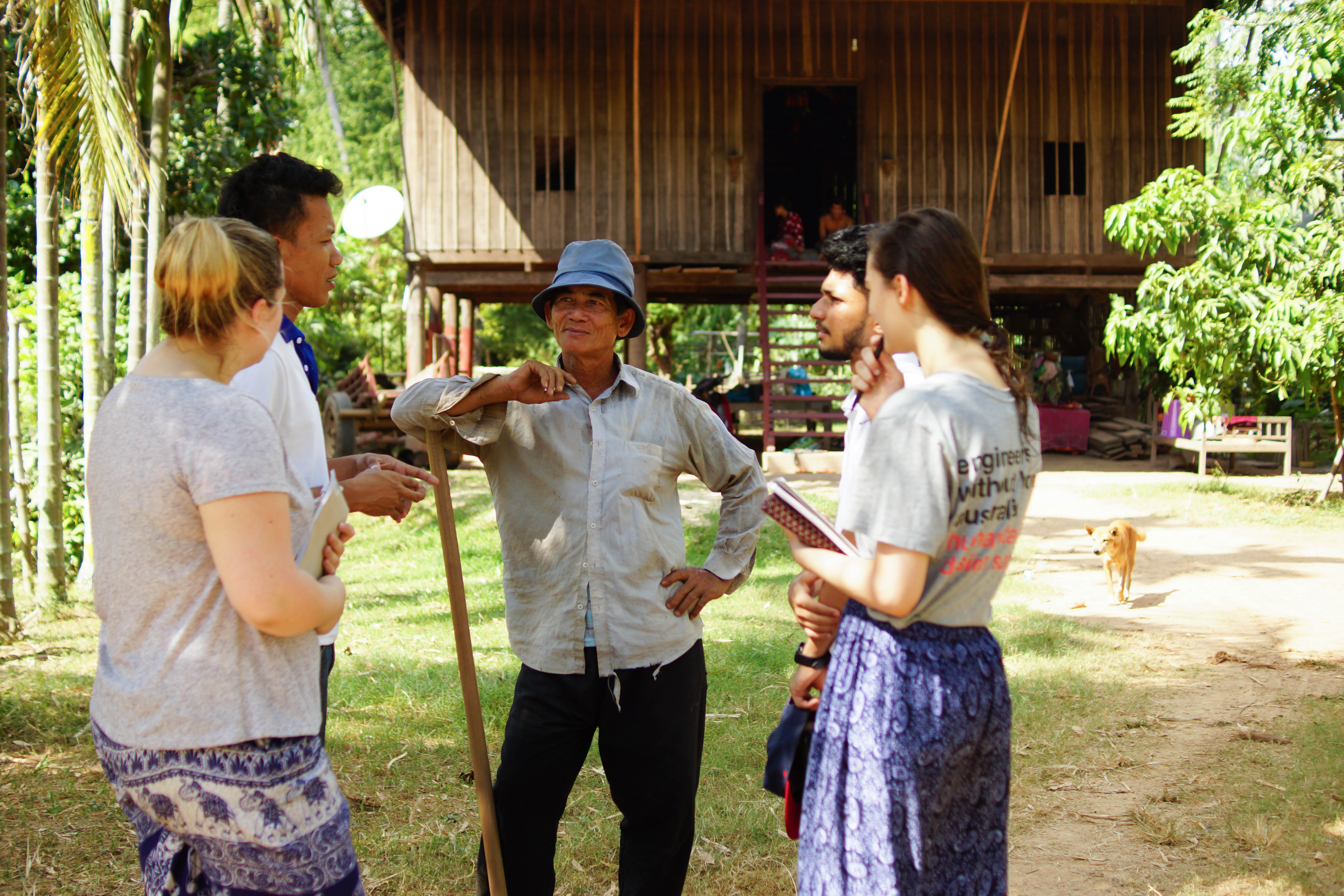
People often think of engineers as problem and solution-based workers who work solitarily with machines and parts, the reality is being an engineer is a far more human role than that. Many basic challenges countries like Australia have managed to overcome still exist in poor and disadvantaged communities, and human-centred engineering offers solutions to fix them.
Humanitarian Engineering challenges the idea that engineers are just scientific thinkers focused on a technical problem and a solution. UNSW Engineering students tackle problems and engineer human-orientated solutions, working towards positive change through a Humanitarian Engineering Minor. Led by senior lecturer and expert in the field Dr Andrew Dansie, it covers a range of humanitarian activities from disaster response and preparedness to long-term sustainable community development within Australia and overseas. It prepares graduates to work in challenging situations to help disadvantaged and disempowered communities and individuals.
It was engineering solutions to create better lives that drove Adam McCurdie to study engineering at UNSW. His admiration for his grandfather, who as an engineer created many life-saving inventions, led him to follow in his footsteps as an engineer.
Adam graduated with a Bachelor of Engineering and Bachelor of Science, working for a number of high-profile companies before co-founding Humanitix, which funds education programs for disadvantaged students. It’s a disruptive online platform for events ticketing that donates 100% of profits to funding indigenous scholarships and girls’ literacy programs in low-income countries.
Adam explains, “a trend is emerging where consumers are expecting brands and industries to be contributing back to society in a meaningful way beyond simply selling a product or service.”
Adam speaks to the growing importance of social responsibility and assisting those in most need of help. “Humanitarian Engineering” does this through appropriate and sustainable solutions developed in partnerships. UNSW contributes to many areas of Humanitarian Engineering through teaching, student projects, research and the success of our alumni in the area.
Humanitarian Engineering often provides essential services such as food, water, shelter and energy through sustainable means that communities can then maintain themselves. In places that lack reliable access to these essentials, engineers develop solutions that improve community access to these services. Different to emergency aid, Humanitarian Engineering seeks to empower communities rather than rescue them.
Humanitarian Engineering is nothing new at UNSW Engineering, for years students have rolled up their sleeves to get hands-on experience through the ChallENG program where they can work with non-profit and social-change organisations in unique cultural experiences. Projects include repairing vital medical equipment in Cambodia or Uganda, creating a sustainable portable water treatment solution for communities or developing sustainable options for drought-resistant agriculture.
During the COVID-19 pandemic students enrolled in the Humanitarian Engineering Minor worked remotely with partners in organisations in Africa, providing support and solutions through online platforms and communication. Students developed solutions and gave guidance to partners in-country who were able to put the solutions into practice, opening up a whole new way of offering value from one country to another.
Studying Humanitarian Engineering helps you develop skills in engineering and inspires you to use your skills as a force for good. At the end of the day, engineers are increasingly bringing a little heart to this mind-led discipline.

